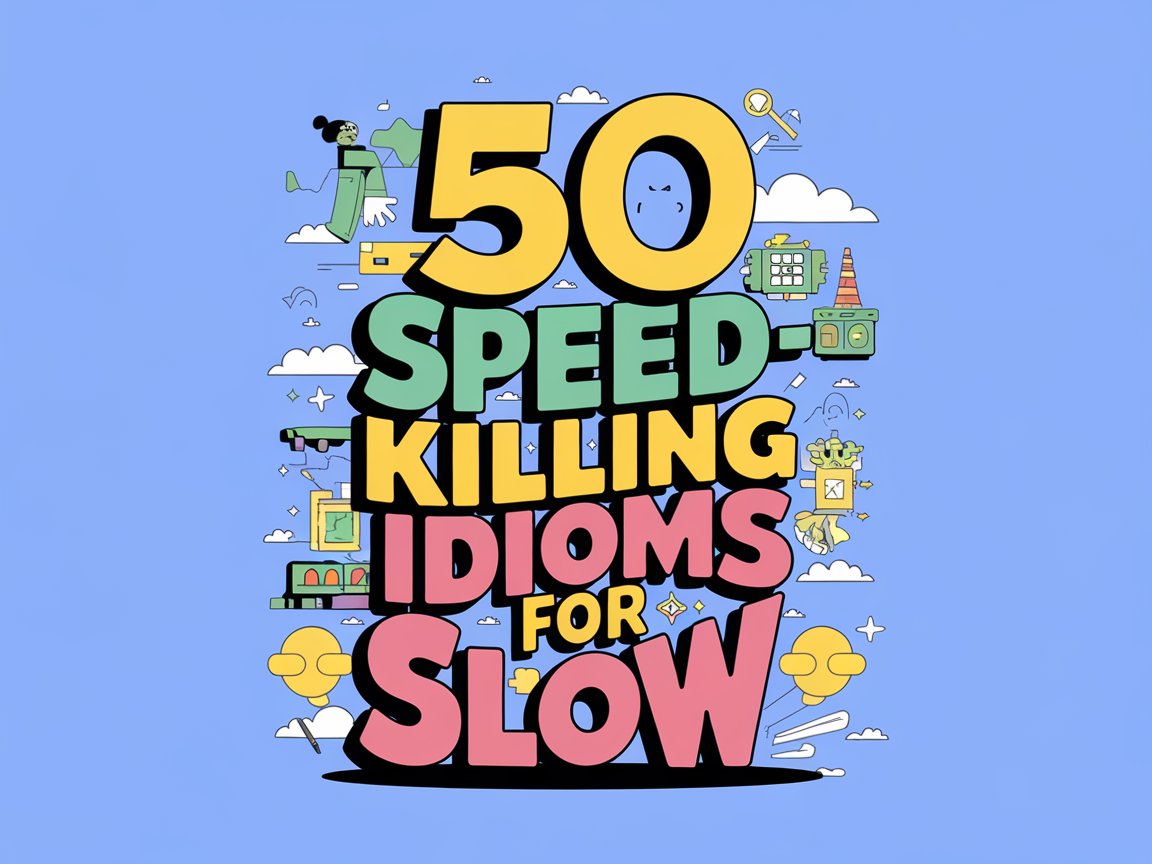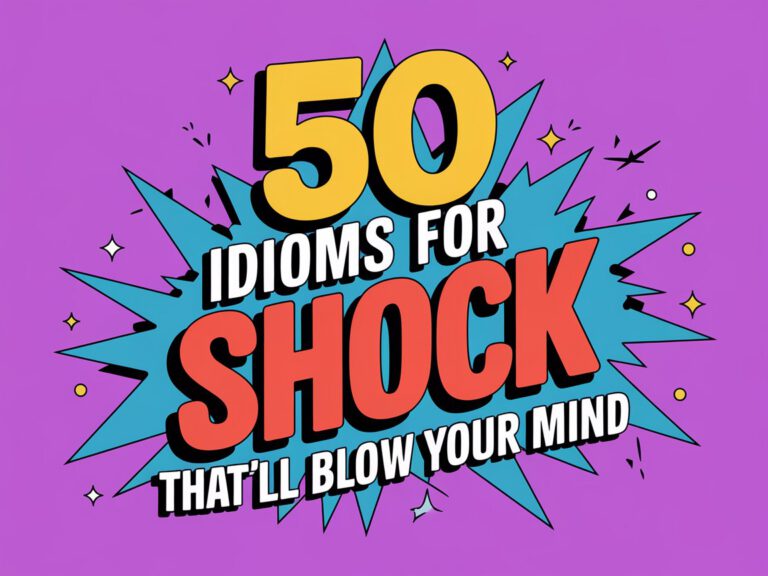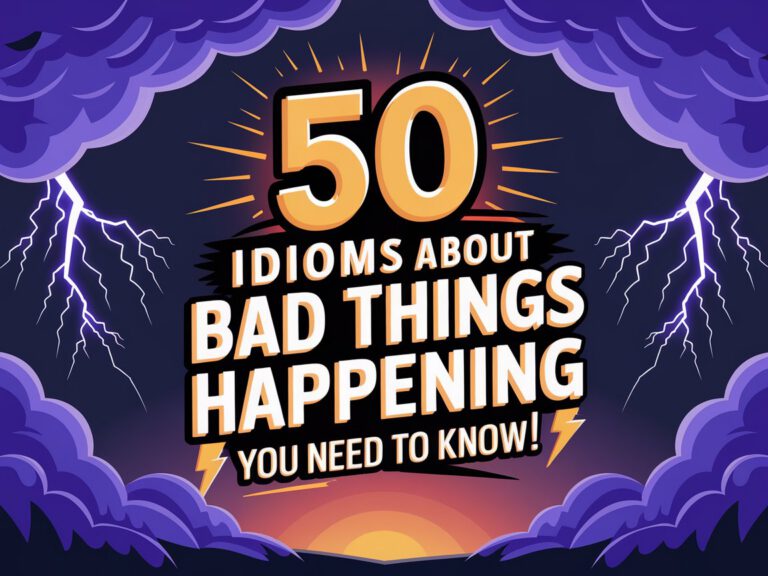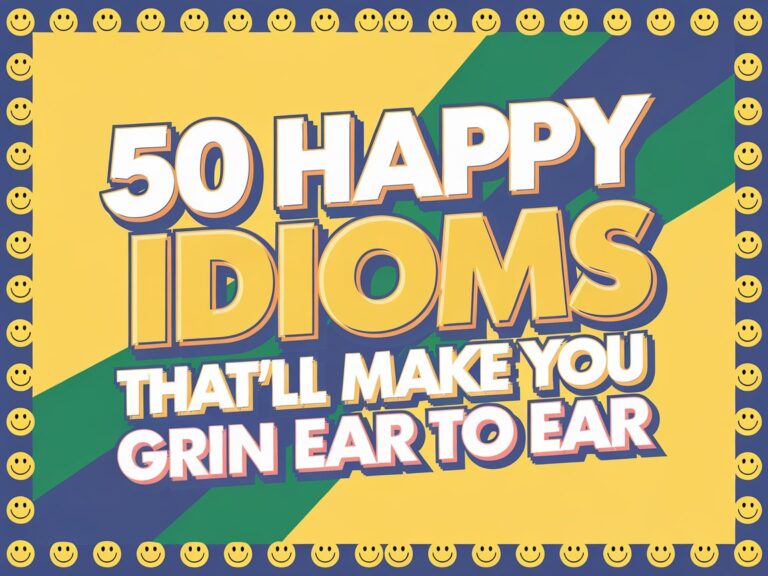50 Speed-Killing Idioms for Slow: Master English’s Slowest Expressions

When language slows to a crawl, English speakers have developed a treasure trove of colorful expressions to capture every shade of sluggishness. From “slow as molasses in January” to “dragging your feet,” these idioms paint vivid pictures of lackadaisical behavior that’ll make you appreciate the art of taking it easy.
The Science Behind Slow: Why We Need These Expressions
As language researcher Dr. Ilhama Mammadova notes in her groundbreaking study, “Proverbs, as fixed expressions of figurative language, offer rich cognitive benefits, enhancing critical thinking, abstract reasoning, and memory retention.” This insight reveals why slow-related idioms stick in our minds—they’re not just words, but cognitive tools that help us process and remember complex concepts about pace and behavior.
| Idiom Category | Examples | Cultural Origin | Usage Frequency |
|---|---|---|---|
| Animal Comparisons | Slow as a turtle | Universal | Very High |
| Food/Substance | Slow as molasses | American | High |
| Movement-Based | Drag your feet | British/American | High |
| Tool/Object | Slow poke | American | Medium |
| Time-Related | Take forever | Universal | Very High |
Your Complete Guide to Slow Idioms
Animal Kingdom Slowpokes
1. Slow as a turtle/tortoise The classic comparison that even kids understand. Turtles move at their own pace, and this idiom captures that perfectly deliberate crawl.
2. Slow as a snail Even slower than a turtle! When someone’s moving like a snail, they’re practically standing still.
3. Slow as a sloth These tree-dwellers are famous for their ultra-slow lifestyle. Perfect for describing extreme laziness.
4. Moving at a snail’s pace Another variation that emphasizes the painfully slow progress of our shelled friends.
5. Slow as a slug These slimy creatures leave a trail of slowness wherever they go—just like someone who can’t get moving.
Food and Substance Slowdowns
6. Slow as molasses This classic American expression comes from the thick, viscous syrup that barely flows. The phrase gained extra meaning after the Great Molasses Flood of 1919 in Boston.
7. Slow as molasses in January The winter version makes it even slower—cold molasses barely moves at all!
8. Slow as honey Sweet but sluggish, honey takes its sweet time flowing from the jar.
9. Slow as cold peanut butter Ever tried spreading peanut butter straight from the fridge? That’s the speed we’re talking about.
10. Slow as treacle British speakers love this one—treacle is their version of molasses, equally thick and slow.
Movement and Action Idioms
11. Drag your feet When you’re reluctant to do something, you literally and figuratively drag your feet.
12. Drag your heels Same concept, different body part. Both express reluctance and slowness.
13. Take your sweet time This phrase suggests someone’s being deliberately slow, often annoyingly so.
14. Move like you’re walking through quicksand Quicksand makes every step a struggle—perfect for describing slow, labored movement.
15. Go at a crawl Like a baby learning to move, this suggests very slow progress.
Tool and Object Comparisons
16. Slow poke This American favorite combines “slow” with “poke,” originally referring to a device used to restrain animals.
17. Slow coach The British version of slowpoke, referring to the leisurely pace of old stagecoaches.
18. Dead in the water When something’s completely stopped or ineffective, it’s dead in the water.
19. Spinning your wheels Lots of motion but no progress—like a car stuck in mud.
20. Move like a broken-down jalopy An old, barely functioning car that chugs along slowly.
Time-Related Expressions
21. Take forever The ultimate exaggeration—it feels like time has stopped.
22. Take an eternity Even longer than forever, if that’s possible!
23. Till the cows come home Cows take their time returning to the barn, so this means “for a very long time.”
24. When pigs fly This suggests something will never happen—the ultimate in slowness.
25. In a month of Sundays A colorful way to say “a very long time.”
Physical State Idioms
26. Move like you’re in slow motion As if time itself has slowed down around you.
27. Sluggish as a bear in winter Bears hibernate, so they’re naturally slow and sleepy.
28. Lethargic as a lizard in winter Cold-blooded animals slow down dramatically in cool weather.
29. Slow as a Sunday Sundays are traditionally relaxed, lazy days.
30. Move like you’re underwater Water resistance makes everything slower and more difficult.
Work and Productivity Idioms
31. Slack off To reduce effort or work less diligently.
32. Goof off To waste time instead of working.
33. Drag your feet on the job To work slowly and reluctantly.
34. Go through the motions To do something without enthusiasm or energy.
35. Phone it in To do something with minimal effort.
Creative and Colorful Expressions
36. Slower than a seven-year itch A humorous exaggeration that plays on the phrase “seven-year itch.”
37. Slow as Christmas Christmas feels like it takes forever to arrive when you’re a kid.
38. Slower than molasses uphill in January The ultimate slow expression—combining molasses, winter, and uphill struggle.
39. Slow as a wet week Rainy weeks feel endless and draggy.
40. Move like you’re carrying the world on your shoulders Atlas had a heavy burden, and so do people moving this slowly.
Regional and Cultural Variations
41. Slowcome A regional term for someone who’s chronically late or slow.
42. Bone loafer An old-fashioned term for someone who’s extremely lazy.
43. Stick-in-the-mud Someone who’s slow to change or adapt.
44. Dawdler A person who wastes time or moves slowly.
45. Laggard Someone who falls behind or moves slowly.
Modern and Contemporary Expressions
46. Slower than dial-up internet A modern comparison that younger generations understand perfectly.
47. Buffering Like a video that stops to load, someone who’s “buffering” is slow to respond.
48. Running on low battery When your energy is depleted, everything slows down.
49. In energy-saving mode Like a device conserving power, someone operating slowly.
50. Slower than a Windows 95 computer The ultimate modern slow comparison for tech-savvy folks.
Pro-Tip: These idioms aren’t just for describing slow people—they’re perfect for adding color to your writing and making your English sound more natural and engaging.
The Psychology of Slowness: Why These Idioms Matter
Understanding slow idioms isn’t just about vocabulary expansion. Research shows that figurative language like idioms activates different parts of your brain than literal language. When you hear “slow as molasses,” your brain creates a mental image, engages with the metaphor, and stores the information more effectively than if someone simply said “very slow.”
Pro-Tip: Use these idioms in context rather than memorizing them in isolation. They’ll stick better and sound more natural.
Cultural Contexts: How Different Societies View Slowness
Interestingly, not all cultures view slowness negatively. While American idioms often emphasize speed and efficiency (“time is money”), other cultures have expressions that celebrate taking time. The key is understanding when slowness is seen as problematic versus when it’s viewed as thoughtful or relaxed.
For instance, the American “slow as molasses in January” carries a frustrated tone, while the British “slow and steady wins the race” suggests that careful, methodical progress is superior to rushing.
Pro-Tip: Pay attention to the emotional tone of these idioms. Some express frustration, others suggest laziness, and some might even carry affection or humor.
How to Use These Idioms Like a Native Speaker
The secret to mastering slow idioms isn’t just knowing their meanings—it’s understanding their connotations and appropriate contexts. Here’s how to use them effectively:
For Gentle Teasing: “Come on, slowpoke!” works perfectly when playfully encouraging a friend who’s taking their time.
For Describing Situations: “The approval process is slower than molasses” describes bureaucratic delays without being too harsh.
For Self-Deprecating Humor: “I’m moving like a sloth today” acknowledges your own sluggish state with good humor.
For Emphasis: “He takes forever to make decisions” emphasizes frustration with someone’s indecisiveness.
Regional Variations and Their Origins
American English tends to favor food-based comparisons (molasses, honey, peanut butter), while British English leans toward transportation metaphors (slow coach, stick-in-the-mud). Australian English has contributed colorful expressions like “slow as a wet week,” reflecting their unique cultural perspective.
Pro-Tip: When learning these idioms, try to understand their cultural origins. This knowledge helps you use them more appropriately and remember them better.
The Art of Metaphorical Thinking
These idioms showcase how English speakers use metaphorical thinking to make abstract concepts concrete. Instead of saying “proceeding slowly,” we paint pictures with words: molasses pouring, turtles crawling, or wheels spinning uselessly.
This metaphorical richness makes English both challenging and beautiful for learners. Each idiom tells a story, carries cultural knowledge, and creates vivid mental images that stick in memory.
Modern Usage and Evolution
Language evolves, and so do our slow idioms. While “slow as molasses” remains popular, newer expressions like “slower than dial-up internet” resonate with digital natives. The key is staying current while respecting traditional expressions.
Pro-Tip: Mix classic idioms with modern ones to sound both knowledgeable and current. “That old computer is slower than molasses and dial-up combined!”
Teaching and Learning Applications
These idioms serve multiple educational purposes:
- Vocabulary Building: Each idiom introduces multiple words and concepts
- Cultural Understanding: They reveal attitudes toward time, work, and behavior
- Memory Enhancement: The vivid imagery aids retention
- Communication Skills: They add color and personality to speech
Avoiding Common Mistakes
Don’t mix metaphors (“slow as molasses in a snail’s pace”) or use inappropriate intensity (“slower than dial-up” for minor delays). Context matters—what’s funny among friends might be rude in formal settings.
Pro-Tip: Practice these idioms in low-stakes conversations before using them in important situations. Get comfortable with their rhythm and connotations.
The Future of Slow Idioms
As our world speeds up, slow idioms might become even more relevant. We’re seeing new expressions emerge from technology, environmental awareness, and changing work cultures. Who knows? “Slower than a loading screen” might become the next classic.
Frequently Asked Questions
What’s the difference between “slow as molasses” and “slow as molasses in January”? The January version emphasizes even greater slowness, as cold molasses barely moves at all. It’s the ultimate slow comparison.
Can these idioms be offensive? Most slow idioms are mild and often used playfully, but context matters. Calling someone a “slow poke” among friends is different from using it critically in a work setting.
Are these idioms used in formal writing? Generally no. These expressions are conversational and informal. In formal writing, opt for more standard language like “proceeded slowly” or “delayed.”
Do other languages have similar slow idioms? Absolutely! Most languages have colorful expressions for slowness. Spanish has “más lento que una tortuga” (slower than a turtle), while German offers “langsam wie eine Schnecke” (slow as a snail).
How do I know which idiom to use? Consider your audience, the severity of the slowness, and your relationship with the person. “Slowpoke” is gentler than “slower than molasses,” for example.
Conclusion: Embracing the Slow Lane
Mastering these 50 slow idioms isn’t just about expanding vocabulary—it’s about understanding the rich tapestry of English expression. These phrases reveal cultural values, showcase creativity, and provide endless opportunities for colorful communication.
Remember, language learning is like a slow-cooked meal—it takes time, but the results are worth savoring. Don’t rush through these idioms; instead, let them marinate in your mind. Practice them in conversations, notice them in movies and books, and soon you’ll be using them as naturally as a native speaker.
The beauty of idioms lies not just in their meanings but in their ability to connect us to culture, history, and shared human experiences. Whether you’re describing a sluggish computer, a leisurely Sunday, or a friend who’s chronically late, these expressions add flavor to your English that no textbook definition can provide.
So go ahead—take your sweet time mastering these idioms. After all, slow and steady wins the race, and there’s no need to rush when you’re building language skills that’ll last a lifetime.
Helpful Resources
- https://www.etymonline.com/word/slow
- https://www.merriam-webster.com/dictionary/slowpoke
- https://dictionary.cambridge.org/us/dictionary/english/as-slow-as-molasses
- https://www.mentalfloss.com/article/80397/13-poke-easy-regional-idioms-describe-lazy-people
- https://www.researchgate.net/publication/384209446_The_Role_of_Proverbs_in_Language_Learning_A_Cognitive_and_Cultural_Perspective
- https://www.idioms.online/slow-as-molasses/
- https://eslvault.com/idioms-about-speed/
- https://www.chicagotribune.com/2016/11/24/slow-as-molasses-sweet-but-deadly-1919-disaster-explained/






